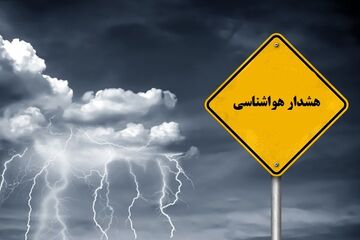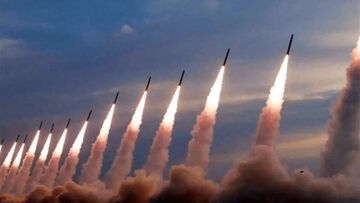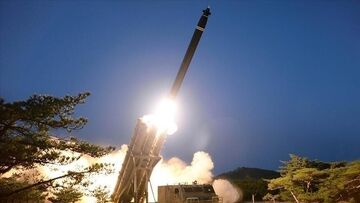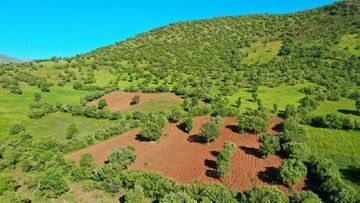Tehran (Bazaar): The proposed Georgia-Ukraine-Azerbaijan-Moldova (GUAM) trade corridor increasingly influential geo-economic pole will become more important in Eurasia across the coming years, adding the Caucasus countries and those beyond it in West Asia and Central Asia will be encouraged to expand their trading relations with it, which will contribute to the formation of new trade corridors, Andrew Korybko tells Bazaar in an exclusive interview.
He also says that Much more important is the growing role of Poland, the strongest economy in Central Europe, which aims to expand its influence over the region through the “Three Seas Initiative” (3SI) for integrating the countries between the Adriatic, Baltic, and Black Seas.
Bazaar: Geopolitical and geoeconomic developments in the Caucasus region have led Iran to pay special attention to transit trade corridors. In fact, Tehran has tried to offer new initiatives, different trade and national routes in the region. To what extent does the Iran-Azerbaijan-Georgia-Black Sea-Europe corridor help increase Iran's position in the region?
Iran’s geostrategic location enables it to function as a fulcrum for facilitating North-South and East-West trade. The first-mentioned is promoted through the North-South Transport Corridor (NSTC) with itself, Azerbaijan, Russia, and India while the second can be advanced through trans-Caucasus connectivity with the Black Sea Region. These projects are complementary and collectively enhance the Islamic Republic’s geo-economic position in Eurasia.
Bazaar: What are the important benefits of launching this corridor connecting the Persian Gulf to the Black Sea for these countries, especially Iran?
Transcontinental trade through Russia isn’t possible due to the US-led West’s unprecedented and preplanned sanctions regime against it, yet it remains important to ensure that trade between Western Eurasia (Europe) and Eastern Eurasia (China) continues. The trans-Caucasus corridor can serve as a shortcut between these two. It can also become an independent geo-economic pole within Eurasia for enhancing all of their developmental potentials and connecting with other corridors.
Bazaar:The establishment of this corridor will increase the transit importance of the Republic of Azerbaijan and Georgia, as well as the expansion of Iran's trade relations with the Caucasus and Eastern Europe. What do you think about this?
It’s a mutually beneficial outcome, one that hopefully Armenia and Russia’s companies that are active in the South Caucasus can also get involved in too. All the surrounding countries can come closer together through combining their geo-economic potential and turning this region into a platform for coordinating North-South and East-West trade across Eurasia. That could help ensure stability and create new developmental possibilities over time.
Bazaar: What effects has the Ukrainian war in the Black Sea region had on Turkey and Russia in terms of energy, trade, security and many other aspects?
Despite voting against Russia at the UN General Assembly, Turkey has refused to comply with the US’ demands to sanction it. This shows that ties between those two remain strong in spite of their trans-regional rivalry across Afro-Eurasia that their leaders have responsibly managed to regulate over the years. Turkey’s objective national interests are served by retaining strategic economic cooperation with Russia and not becoming overly reliant on its Western partners.
Bazaar: New and emerging transport links between the Baltic Sea, the Black Sea and the Caspian Sea will create a diverse and new communication architecture that will provide opportunities for all countries along the routes, including the GUAM Transport Corridor, which becomes an integral part of this new architecture. The most important component for the implementation of the GUAM Corridor is the establishment of peace in the two regions of the Black Sea and the South Caucasus, even though these two regions have a lot of tensions. How far is the implementation of this corridor in the Black Sea?
The proposed Georgia-Ukraine-Azerbaijan-Moldova (GUAM) trade corridor is been discussed for a while and is already somewhat in effect, though it’s not a major geo-economic axis and that’s why it hasn’t received a lot of attention. Much more important is the growing role of Poland, the strongest economy in Central Europe, which aims to expand its influence over the region through the “Three Seas Initiative” (3SI) for integrating the countries between the Adriatic, Baltic, and Black Seas.
There are already connectivity projects being built for pioneering a new North-South corridor between the Scandinavian Arctic and the Greek Mediterranean through these countries. This increasingly influential geo-economic pole will become more important in Eurasia across the coming years. The Caucasus countries and those beyond it in West Asia and Central Asia will be encouraged to expand their trading relations with it, which will contribute to the formation of new trade corridors.















نظر شما